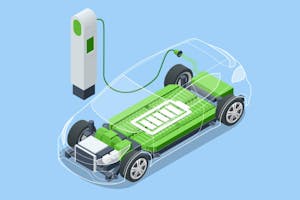One of the biggest questions new EV buyers ask is: “How long will the battery last?”
Electric vehicles (EVs) are generally easier to maintain than petrol cars. With fewer moving parts and regenerative braking that reduces wear on brake pads, there’s simply less to worry about. But the battery — the heart of the EV — remains the main concern for most drivers.
The Basics: What Powers an EV

Most modern electric cars use lithium-ion batteries — the same kind found in laptops and smartphones, but on a much larger scale. They are powerful, efficient, and hold a charge well.
Pros:
- High energy density (more power for less weight)
- Low self-discharge — only about 1–2% per month
- Steady voltage throughout most of the charge
- No complex maintenance required
Cons:
- Expensive to produce
- Can degrade if frequently charged to 100% or drained to 0%
That is why every EV has a Battery Management System (BMS) and thermal controls to keep everything running safely and efficiently.
How Long Do They Really Last?
Most automakers back their EV batteries with 8-year or 100,000-mile warranties, which cover both failure and unusual capacity loss.
In real-world use, most EV batteries last 12–15 years in moderate climates and about 8–12 years in hotter or colder environments. In other words, the battery will likely outlast your ownership of the car.
Safety and Maintenance
EV batteries are built tough. They are sealed in protective casings and tested against heat, vibration, water, and impact.
Contrary to popular myth, EVs are far less likely to catch fire than petrol cars. For instance, a Swedish study found that combustion cars averaged 1,530 fires per 100,000 sold, compared to just 25 for EVs.
Day-to-day maintenance is pretty simple — mainly tires, brakes, and fluid checks. Because EVs are heavier and deliver instant torque, tire wear can be higher, but overall running costs remain much lower than for combustion vehicles.
Tips to Keep Your EV Battery Healthy

- Avoid 0% or 100%: Keep your charge between 20–80% for everyday use.
- Use moderate charging: Level 2 charging is easier on the battery than constant DC fast charging.
Bottom Line
EV batteries are built to last. Most drivers can expect a decade or more of reliable use before even thinking about replacement — and as technology improves, those batteries are only getting stronger and cheaper.
Owning an electric vehicle is not just about saving fuel; it’s about embracing smarter, simpler, and cleaner driving for the long run.



